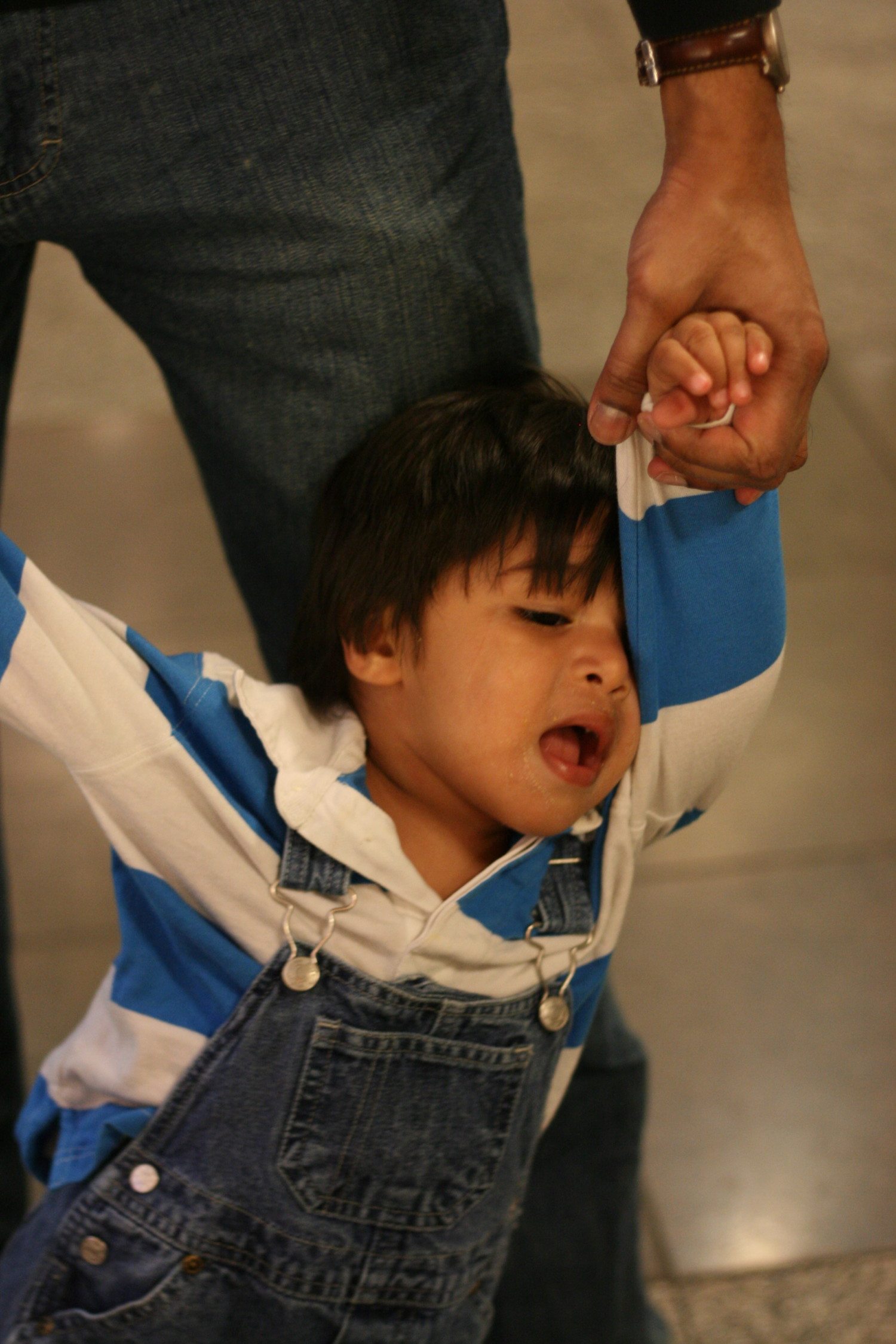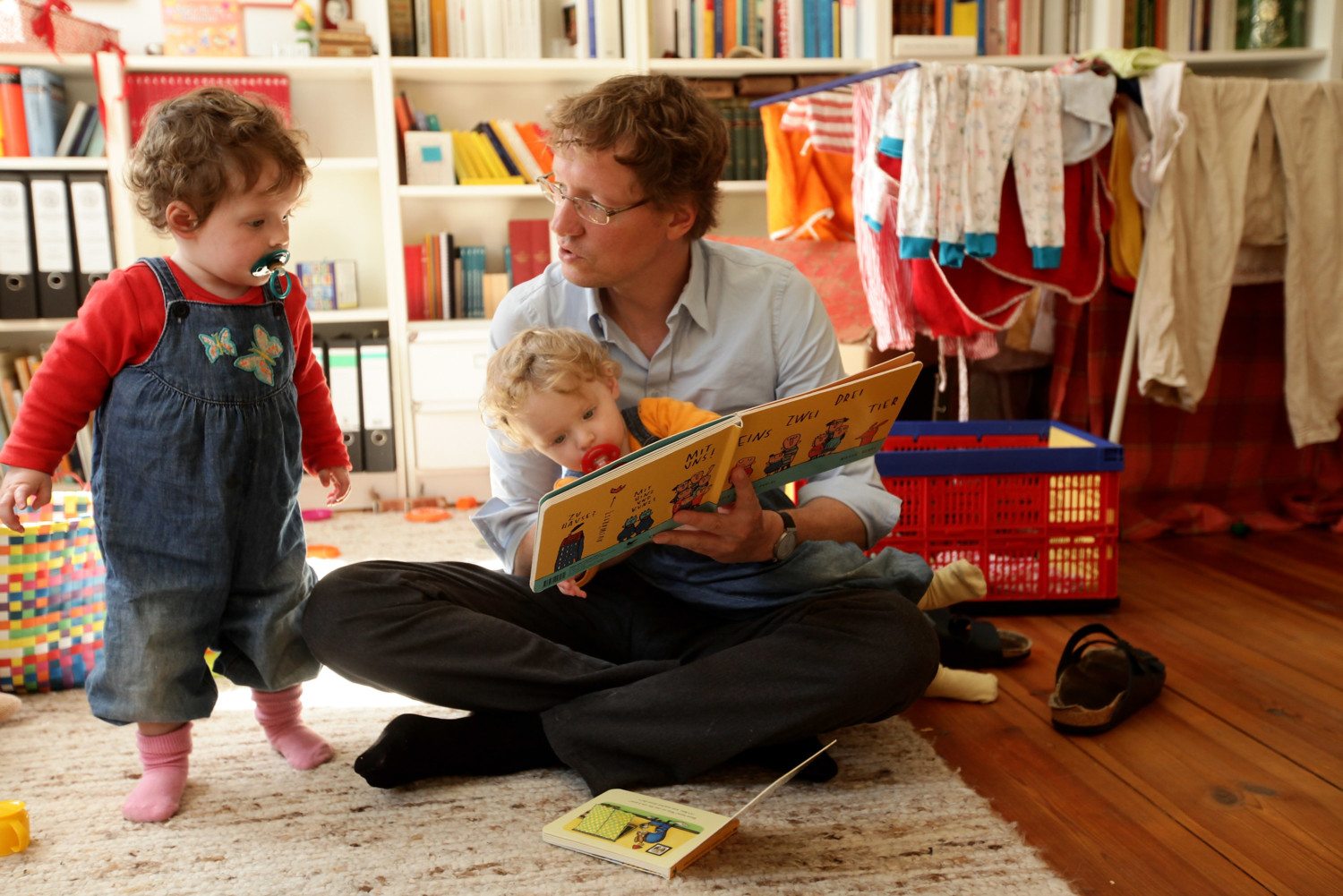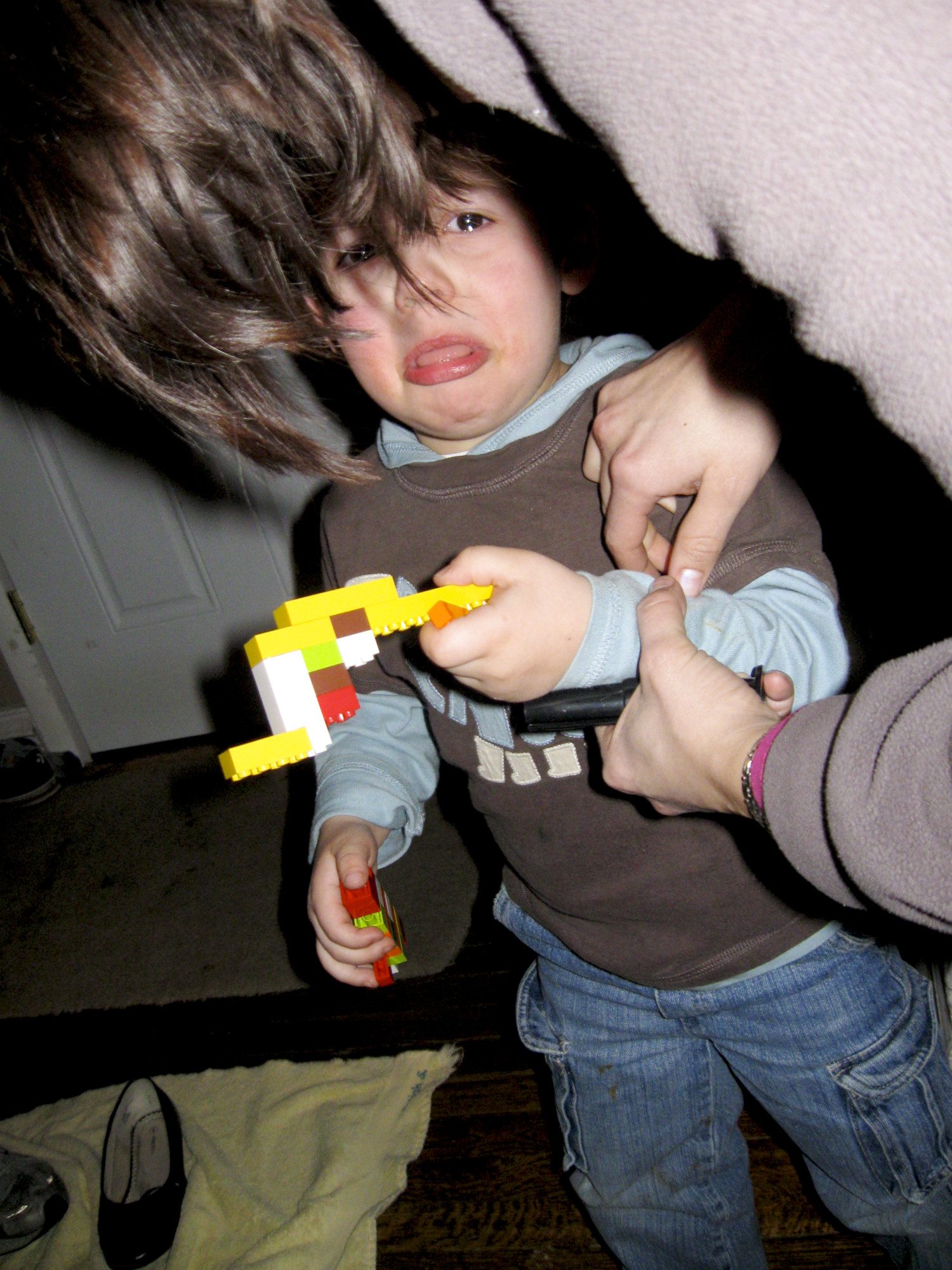Plenty of celebrity photos make their way around the internet, but this one is spreading an important reminder for parents.
“Jane the Virgin” actor Justin Baldoni posted a photo of his child throwing a temper tantrum in the middle of Whole Foods, and its message is resonating with parents.
It was his wife who snapped the photo, which shows Baldoni and his dad standing over Baldoni’s daughter, Maiya, as she has a little bit of a fit.
Baldoni shared the photo on Facebook for a couple of reasons.
First of all, he takes the time to thank his dad for teaching him how to be patient and “comfortable in the uncomfortable.”
He goes on to say, “My dad always let me feel what I needed to feel, even if it was in public and embarrassing. I don’t remember him ever saying ‘You’re embarrassing me!’ or ‘Don’t cry!’ It wasn’t until recently that I realized how paramount that was for my own emotional development.”
And now, Baldoni’s using that same parenting approach with his daughter.
“I try to remember to make sure my daughter knows it’s OK that she feels deeply,” he writes. And based on adorable photos of his family that he’s shared since, it seems like Maiya came out of that tantrum just fine.
Baldoni is certainly not the only celebrity to be open about dealing with tantrums and the struggles of parenthood.
Earlier this year, Drew Barrymore detailed a time her children broke down while at the “happiest place on Earth,” Disney World, and parents everywhere could relate. Because yes—these types of things happen to every parent.
And as Baldoni points out, that’s OK.
Before you try to deal with a tantrum, it’s good to understand why your child is having one in the first place.
Ray Levy, PhD, told Parents magazine, “For children between 1 and 2, tantrums often stem from trying to communicate a need—more milk, a diaper change, that toy over there—but not having the language skills to do it,” Levy said. “They get frustrated when you don’t respond to what they’re ‘saying’ and throw a fit.”
But, this doesn’t just happen toddlers, as parents well know.
“By the time kids are 3 or 4, they have grown more autonomous,” Levy adds. “They’re keenly aware of their needs and desires—and want to assert them more. If you don’t comply? Tantrum city,” Levy said.
And when the inevitable tantrums arise, what’s the best way to handle them?
Well, there are a couple of expert recommendations, but keep in mind that every parenting style is different.
1. Wait Out The Tantrum
According to Jay Hoecker, MD, a Rochester, Minnesota, pediatrician, there’s no reasoning with a child who’s having a tantrum because “the reasoning part of his brain isn’t working.” So, it’s best to wait it out and try to talk once your child has calmed down.

2. Take A Pre-Emptive Approach
Sarah Ockwell-Smith, founder of the BabyCalm parent-baby learning program and author of the book “ToddlerCalm,” told The Telegraph that one way she helps her toddler avoid tantrums is by making sure he is fed, well-rested and that she “can see the world from his point of view (from which it can sometimes look a scary place).”
If you can predict what may cause a tantrum, you’ll have a better shot of keeping the fits to a minimum.

3. Try To See From Their Point Of View
As Baldoni points out, children are under a lot of pressure to accurately express a lot of emotions once a tantrum is underway. If you try to understand what they’re going through at the moment, you’ll be much less likely to be angry about they way they’re behaving.

4. Stop Worrying About What Other People Think
This is a huge part of the “coping with tantrum” literature online. When parents can let go of the idea that people are judging them for their child’s behavior, tantrums—especially those that happen in public—will be much easier to handle.
Baldoni wrote on Facebook, “There are no perfect parents, but one thing my dad taught me is to not parent based on what anyone else thinks.” And that’s important to keep in mind.
5. Give Your Child Some Space
As an adult, space can be a great thing when you’re angry. It gives you a chance to gain some clarity and perspective on the situation at hand, and the same can be true for children.
“Sometimes a kid just needs to get his anger out. So let him!” Linda Pearson, a nurse practitioner and author of “The Discipline Miracle” told Parents magazine. “I’m a big believer in this approach because it helps children learn how to vent in a nondestructive way. They’re able to get their feelings out, pull themselves together, and regain self-control—without engaging in a yelling match or battle of wills with you.”

Tantrums will come and go, but the way you handle them could have an impactful effect on your child. Baldoni’s dad allowed him feel whatever feelings arose, and as parents, that seems like a good move.
This story originally appeared on Simplemost. Checkout Simplemost for other great tips and ideas to make the most out of life.

